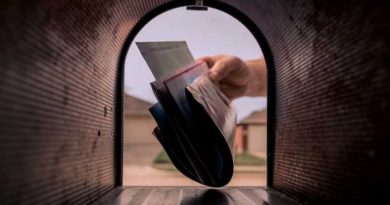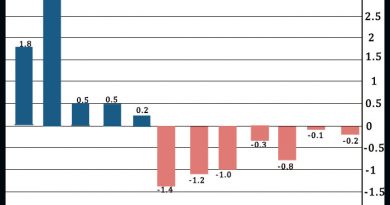Suicide of Wall Street investor Charles de Vaulx leaves friends shocked
More On:
wall street
Facebook lifts S&P 500 to record intra-day high
Deutsche Bank shares surge after it posts best results in 7 years
Prominent investor’s apparent suicide a tragic Wall Street tale
Jamie Dimon launching coalition that aims to boost hiring of ex-cons
The suicide of New York investor Charles de Vaulx surprised his closest colleagues and loved ones even though he was noticeably downtrodden over the abrupt liquidation of his 14-year-old investment firm, sources told The Post.
The 59-year-old financier — who took his life on Monday by jumping from a Midtown Manhattan office tower — was “very depressed” after International Value Associates wound down its operations in March, said Jean-Marie Eveillard, a legendary value investor who had been De Vaulx’s mentor.
Nevertheless, Eveillard told The Post in an exclusive interview that he was “completely shocked” by de Vaulx’s suicide — which took place just minutes after he entered his fund’s Fifth Avenue luxury tower around 1 p.m. and rode the elevator to the 10th floor.
“There were zero warning signs,” Eveillard said. “The family could see he was unhappy but not from the point he would jump from the terrace — there was no indication whatsoever.”
Charles “Chuck” de Lardemelle, another highly respected money man who until last year had been de Vaulx’s partner at IVA, was likewise “flabbergasted” by the news, according to Eveillard.
“He called me and had no indication that Charles would throw himself off,” Eveillard said.
De Lardemelle — who, according to one source, de Vaulx called his “Charlie Munger,” referring to Warren Buffett’s right-hand man at Berkshire Hathaway — didn’t return requests for comment. But insiders speculated that de Lardemelle’s exit from IVA last year amid a power struggle with de Vaulx may have helped trigger the demise of the once-mighty fund.
While IVA had managed $20 billion in assets at its height, it got slashed to about $2.3 billion in recent months as skittish investors demanded their cash.
“De Vaulx saw himself as a king — he made all the decisions but they managed to cooperate,” Eveillard said, when asked about the relationship between de Vaulx and de Lardemelle. But “when you’re the No. 1 and you don’t get along well with No. 2, institutions notice. Institutions don’t want to see infighting.”
When de Vaulx liquidated the downsized fund last month, many investors were surprised as it remained giant by most standards and was still generating modest, albeit positive returns. De Vaulx even had a serious offer from a buyer interested in purchasing the fund but rejected it, according to people with knowledge of the matter.
“He didn’t even try selling because to him it was abandoning,” Eveillard said. “Charles … didn’t want to bother negotiating with another firm and selling the business.”
A former colleague of de Vaulx’s at First Eagle, Abhay Deshpande believes the liquidation was a sign of deep psychological trouble, “Charles winding up the firm like he did with no notice to employees or shareholders was an act of withdrawal.”
That’s despite the fact that de Vaulx’s net worth was estimated in the hundreds of millions of dollars. He had a wife and two daughters, one of them a recent graduate of University of Pennsylvania’s Wharton School of Business, according to another source close to the family.
“He loved to ski and golf and ask questions and drink cognac,” said the second source, who spoke on the condition of anonymity. “Why do it? You don’t have to kill yourself. None of us can put it together.”
“I thought his curiosity and love for his daughters and for life would outweigh the sadness… that’s what shocked me,” the source added. “I never thought a person with that level of drive would give up.”
Indeed, insiders said de Vaulx’s fatal flaw may have been that he took investing too seriously. While insiders say de Vaulx had long aspired to achieve Eveillard’s iconic status as an investor, Eveillard noted that he himself had suffered setbacks in his career, including in 2000 when his First Eagle fund tumbled to $2 billion in assets from $6 billion.
“He was a good investor, but too tense, and when things turned sour he took it personally and you shouldn’t take it personally,” Eveillard said of de Vaulx. “I wasn’t happy when I went to $2 billion, but it wasn’t the end of the world.”
“As strong as Charles was as a personality, I think he found himself just as vulnerable as anyone,” Deshpande adds. “The money is irrelevant… at the end he was just a person who needed help and didn’t get it.”
Share this article:
Source: Read Full Article




